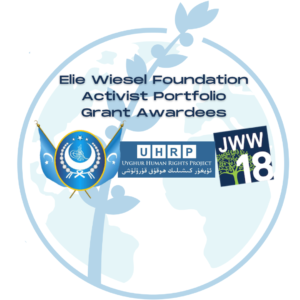Diana Buckhantz, JWW Board Member, is traveling with four other JWW delegates in Congo’s eastern provinces. They will work with survivors of the country’s decades-long conflict, which has claimed nearly six millions lives. They will meet with JWW’s partners on the ground, with whom JWW works to create innovative programs and projects that change lives and transform communities.
***
Here are just a few astounding things that I learned about Congo this evening: Congo’s minerals are worth close to $30 trillion; Congo is home to the world’s second largest rain forest; 54% of Africa’s fresh water is in Congo; and Congo has 120 million hectares of farmable land, which could feed 2 billion people. Congo’s incredible beauty is legendary — and it’s home to the same gorillas that drive a large number of tourists to Rwanda. Given its natural resources, Congo should be one of the world’s richest countries. Instead, it has no infrastructure, very poor healthcare, 48% illiteracy, and extreme poverty.
Many things have contributed to Congo’s woes. The country’s constant conflict and the instability of its regional neighborhood have brought destruction to people, property, and the Congolese economy for decades. At the same time, the government and the international corporations who operate with little regulation in Congo have used the country’s resources in way that has done very little to benefit its people.
Tonight, over dinner with our partner from the Enough Project, Fidel Bafilemba, we discussed how things are beginning to shift. Fidel, among other things, does research on how the UN Joint Missions Analysis Center works in the field to certify conflict-free mines in Congo. We are seeing a remarkable change lately, and this is in large part a result of international pressure and greater regulation from the Dodd-Frank legislation, which requires U.S. companies to trace and audit their mineral supply chains, and determine whether the minerals they purchase come from conflict zones in Congo. As a result of the advocacy work of JWW and its partners in the United States and around the world, 67% of the 500 most important mines in the Kivus — the DRC’s most important mining region — are conflict-free. JWW has been at the forefront of the movement to make that possible.
Given this progress, accountability is taking on another meaning in Congo. Fidel and others have argued that international organizations should be coming into Congo with an exit strategy, with the intention of empowering community-based, Congolese organizations and individuals to take over their work.
It is not enough to simply throw aid at Congo. International organizations must support the efforts of local individuals to develop and run the programs that they know will benefit their communities. That is what it will take to create a middle class — and close the disparity between the haves and have nots in Congo. I’m proud of the work that our JWW Grantmaking Committee has done to ensure that our projects here in Congo work with effective, community-based organizations. By investing in local leadership, we can truly help to move whole communities forward.
Fidel thinks we all need to work together to promote, foster, and deepen the talent and resources of the Congolese people — and move away from a perspective where all of Congo’s woes are blamed on the devastating legacy of the Belgians or the whims of the international community. Jewish World Watch has met and partnered with so many of these phenomenal individuals — men and women who are working hard to rebuild their country and bring Congo the many riches that it so deserves. We will continue to support them so that one day our support will no longer be needed here.


